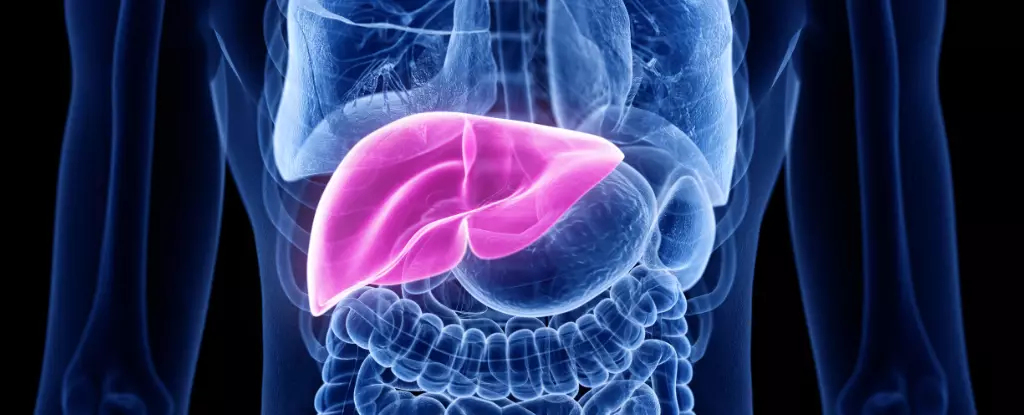In a remarkable breakthrough in the realm of oncological surgery, a 32-year-old woman named Bianca Perea from Manchester, UK, has become the first patient in the country to undergo a liver transplant for advanced bowel cancer. This landmark procedure, performed in the summer of 2024, not only signifies a monumental advancement in cancer treatment but also sheds light on the evolving strategies to combat the disease, particularly in cases where traditional therapies have failed. Diagnosed with stage 4 bowel cancer in November 2021, Perea’s journey exemplifies the complexities of cancer management and the necessity for innovative approaches.
Bowel cancer, or colorectal cancer, stands as the fourth most prevalent cancer in the UK, accounting for 11% of all new cancer diagnoses annually. The disease tends to be particularly aggressive, especially when detected at an advanced stage, as it often metastasizes to the liver. For patients like Perea, conventional treatment options—including surgery, chemotherapy, and radiation—become increasingly complicated when the cancer has spread. Standard procedures typically aim not for a cure but to alleviate symptoms and extend life, yet the evolving landscape of medical research opens doors to new possibilities.
Perea’s case is an emblematic example of the challenges faced by patients with bowel cancer. At the time of her diagnosis, the cancer had invaded all eight segments of her liver, leaving her prognosis disheartening. However, Perea’s resilient response to drug-based treatments raised hopes. The question remained: could a liver transplant offer a pathway to a cure?
Traditionally, liver transplantation has primarily been reserved for patients with primary liver cancers. However, emerging evidence suggests that it can also benefit those suffering from advanced bowel cancer, particularly when the disease has disseminated to the liver. Perea’s successful transplantation underscores a critical shift in the understanding of how multi-faceted treatment approaches can offer new hope.
Research indicates that by providing a new liver, not only may all cancerous tissue be eradicated, but the immune response triggered by the transplant may contribute to combating residual cancer cells throughout the body. Despite the positive outcomes, it is important to acknowledge that such procedures are not universally applicable and must be approached with caution.
Perea’s remarkable recovery did not solely hinge on the transplant. The synergy of various treatments, including targeted drug therapy and surgical intervention to remove the original tumor, played a critical role prior to the transplantation. Post-transplant, patient monitoring becomes imperative due to the potential recurrence of cancer, as even microscopic cells may remain undetected. Lifelong administration of immunosuppression drugs is necessary to prevent organ rejection, adding another layer of complexity to the recovery process.
Moreover, while Perea’s case offers a glimmer of hope, it does not signify a panacea for all bowel cancer patients. Current estimates suggest that only a small fraction—approximately 2%—of those with advanced bowel cancer may be suitable candidates for liver transplantation. Rigorous selection criteria, coupled with more extensive clinical trials, are essential for determining the efficacy and overall benefits of this treatment modality.
As the medical community begins to embrace the potential of liver transplants for bowel cancer patients, critical ethical considerations arise. Given the limited availability of donor organs, it is crucial to weigh the implications of prioritizing liver transplants for cancer patients against the needs of individuals awaiting transplants for other conditions. This raises vital questions about resource allocation and the broader impact on transplant waiting lists.
Furthermore, while Perea’s case is promising, it highlights a pressing need for additional research into long-term survival rates and quality of life for patients who undergo liver transplantation due to advanced bowel cancer. Trials that juxtapose liver transplantation with other advanced treatment options will be vital in clarifying its benefits, ultimately guiding clinicians in making informed treatment decisions.
Bianca Perea’s groundbreaking surgery not only marks an important milestone in medical history but also reinforces the necessity of innovation in cancer treatments, particularly for challenging cases like advanced bowel cancer. This achievement opens pathways for further investigation into liver transplantation as a viable treatment option, potentially transforming the landscape of oncology and patient care. As research progresses, the hope is that more patients suffering from advanced bowel cancer can find solace in future treatment strategies, leading to improved prognoses and enhanced quality of life. The journey is just beginning, and the medical community stands on the cusp of significant progress.

